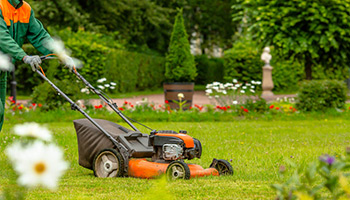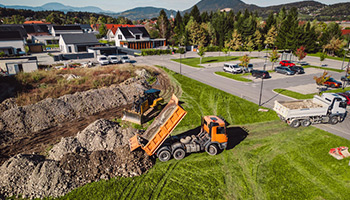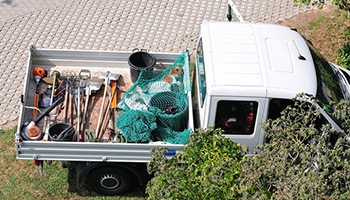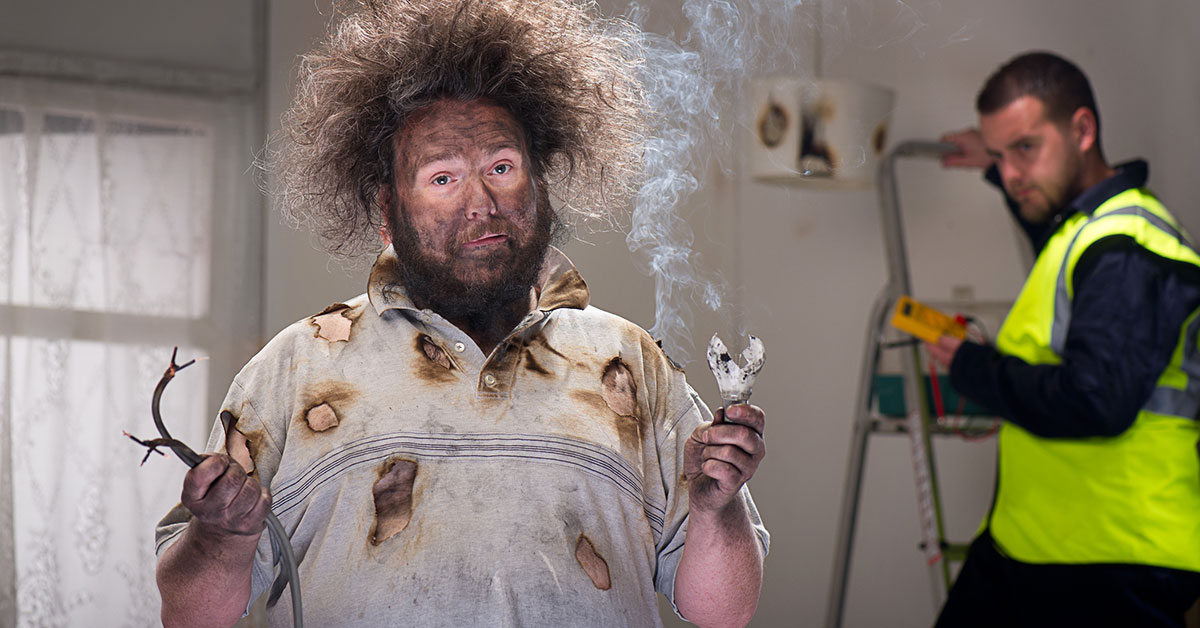Running a landscaping business takes more than just a green thumb. You manage a complex operation with multiple moving parts: employees, specialized equipment, vehicles, and clients. With so many moving parts, even one accident or mistake can lead to expensive claims or legal trouble. That’s why having the right landscaping insurance is non-negotiable. It’s more than just a safety net – it’s a smart business investment that protects your finances, your team, and your reputation. Whether you’re mowing residential lawns, installing irrigation systems, or designing large outdoor spaces, business insurance helps your business stay protected and operational, even when the unexpected happens. In this guide, we’ll cover the six most important insurance coverages every landscaping or gardening business should consider.
Why Your Landscaping Business Needs Customized Insurance
Business insurance isn’t a one-size-fits-all product; it can and should be precisely tailored to the unique needs of lawn care professionals, gardeners, and landscape contractors. The key is to combine multiple insurance coverages to protect you from major financial losses caused by accidents, injuries, or property damage that occur on the job. Think about your average workday – Landscapers face major risks every time you’re on a job site: you’re constantly operating heavy machinery, hauling valuable tools and materials, and working directly on sensitive client properties. Because of these unique challenges, an off-the-shelf General Liability policy simply won’t cover everything.
That’s where a customized business insurance package steps in. It ensures you’re protected from scenarios like these:

- An employee damages a customer’s fence while trimming hedges
- A mower kicks up a rock that injures a passerby
- A client claims you used the wrong fertilizer and destroyed their lawn
- Your trailer full of tools is stolen overnight
- A storm damages your business property or vehicles
Without insurance, these incidents could result in thousands of dollars in out-of-pocket costs, potentially threatening your business’s future.
6 Essential Landscaping Insurance Coverages

A strong landscaping insurance policy is built on several coverage types that work together. Below are six essential coverages every landscaping company should consider.
1. General Liability
General liability is the foundation of any landscaping insurance policy. It covers third-party bodily injury and property damage claims that happen during your business operations.
- Bodily Injury: If a client or visitor trips over your extension cord or equipment and gets hurt on your worksite, this coverage helps pay for their medical expenses and your legal defense costs.
- Property Damage: If your crew accidentally damages a customer’s fence, sprinkler system, or driveway, this coverage helps pay for the necessary repairs or replacement.
Even a small mistake can result in thousands of dollars in damages. General liability insurance ensures that one incident doesn’t jeopardize your entire business.
2. Professional Liability (Errors & Omissions)
Professional Liability insurance, also known as Errors & Omissions (E&O), protects your business from claims of mistakes, poor advice, or negligence that cause a client a financial loss. For example, if a client claims your landscape design or choice of plants led to severe drainage issues, plant death, or structural damage, E&O coverage can help pay for your legal defense, settlements, or the costs required to fix the design flaw. This coverage is especially important if you provide design, planning, or consultation services. Keep in mind that E&O is separate from a General Liability policy.
3. Commercial Auto
Your landscaping business depends on reliable transportation. Whether you’re hauling equipment, moving materials, or sending teams to job sites, your vehicles are important. That’s where Commercial Auto Insurance comes in. Personal auto policies don’t cover accidents that happen while conducting business, so commercial auto coverage fills that gap. It protects you from:

- Accidents involving company vehicles
- Damage caused by theft, vandalism, or weather
- Injuries or property damage to others during an accident
Many landscapers also transport trailers, dump trucks, or flatbeds loaded with equipment. With commercial landscaping insurance, you can include optional coverage for rented or non-owned vehicles and attached equipment, such as trailers or sprayers.
4. Workers’ Compensation
If you employ one or more workers, most states legally require you to carry Workers’ Compensation insurance. This coverage helps pay for an employee’s medical expenses, lost wages, and rehabilitation costs if they get injured or sick on the job. Landscaping is physically demanding, with risks like slips, falls, cuts, heat exhaustion, or injuries from equipment or materials. Workers’ comp not only provides essential protection and care for your employees but also protects your business from potential lawsuits related to workplace injuries.
5. Tools & Equipment (Inland Marine Insurance)
Your tools and equipment are the backbone of your business. Inland marine insurance (often called tools and equipment coverage) protects your gear wherever you keep it – in your vehicle, in a trailer, or at a job site. This coverage is available as an add-on to your General Liability policy and helps you pay to repair or replace stolen, lost, or damaged items such as:

- Lawn mowers and trimmers
- Blowers and power tools
- Portable generators
- Hand tools and specialty landscaping equipment
Without this coverage, replacing stolen or damaged gear can be costly and slow down your operations.
6. Commercial Property & BOP
If your business operates from a physical location—such as an office, storage yard, or workshop—Commercial Property insurance is essential. It covers your business’s physical assets, including your buildings, permanent fixtures, and inventory against fire, theft, vandalism, or severe weather damage.
Consider a Business Owners Policy (BOP): You can often combine Commercial Property and General Liability insurance with Business Interruption coverage in a single package called a Business Owners Policy (BOP). A BOP offers broad protection, simplifies your insurance management, and can often reduce your overall insurance costs while covering lost income if your business temporarily closes after a covered event.
How Much Does Landscaping Insurance Cost?
The cost of landscaping insurance varies widely depending on your business size, the scope of services you offer, and various risk factors, such as:
- The types of landscaping projects you handle
- Your business location and the type of property you own or rent
- The number of employees on your payroll
- The number and type of vehicles you use
For small, sole-proprietor landscaping businesses, basic coverage can start at just a few hundred dollars per year. In contrast, larger contractors with multiple crews and heavy machinery will pay significantly more.
Get a Business Insurance Quote from AIS
Protecting your landscaping business starts with having the right insurance plan in place. At AIS Insurance, we specialize in helping small business owners find affordable, tailored coverage to meet their unique needs. Our experts can help you compare multiple quotes and build a comprehensive landscaping insurance policy that keeps your business protected year-round. Call us today at (866) 570-7335 to get your free business insurance quote!
The information in this article is obtained from various sources and offered for educational purposes only. Furthermore, it should not replace the advice of a qualified professional. The definitions, terms, and coverage in a given policy may differ from those suggested here. No warranty or appropriateness for a specific purpose is expressed or implied.


